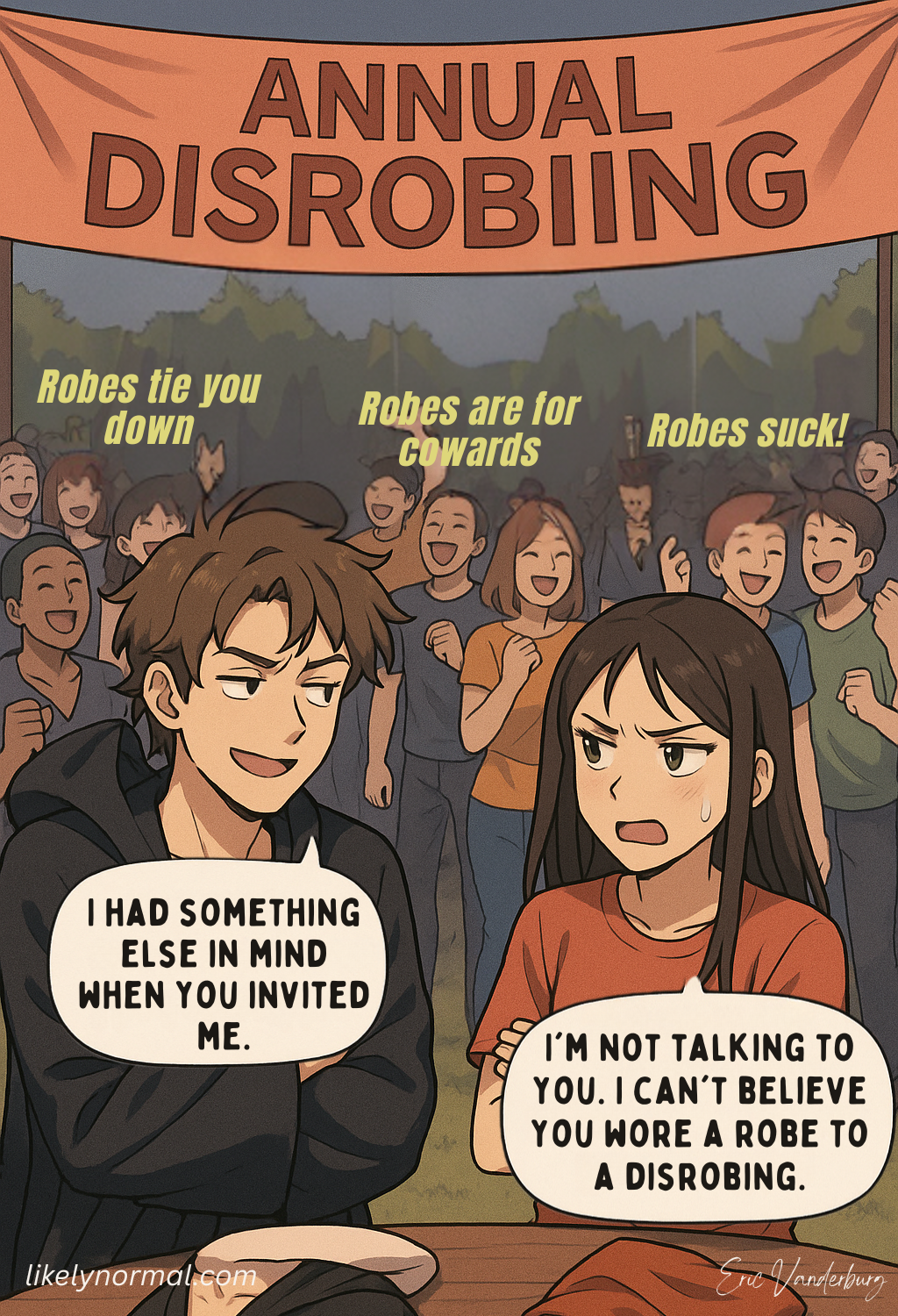Disrobing
Language is a precision tool—or at least, it should be. But somewhere along the way, we collectively decided that accuracy is overrated and that hijacking terms for comedic effect is far more entertaining. Now, we wield words like toddlers with spray paint, leaving behind a chaotic masterpiece of misapplied jargon. Take the rampant overuse of “trauma,” for example—no, Monique, your Starbucks order being wrong is not a “psychological wound,” it’s just a Tuesday. Then there’s “gaslighting,” which has evolved from a serious psychological term to a catch-all for any minor disagreement. “You said the meeting was at 3, but it was actually 3:15? Classic gaslighting.” Actual manipulators are flattered by how easily we hand out the label.
And let’s not forget “hyperfixation,” which used to describe intense, involuntary focus but now just means “I watched a whole season in one night.” Meanwhile, people with real OCD cringe every time someone claims to have it because they color-code their Post-its. Then there’s “POV,” which no longer means “point of view” so much as “vaguely relatable scenario I want to meme-ify.” “POV: You’re me when the WiFi drops for five seconds.” No, Brenda, that’s not a perspective—that’s just life.
We’ve also normalized declaring ourselves “dead” at the slightest amusement (“My cat yawned—I’m deceased, goodbye forever”) and describing things with the cryptic “It’s giving…” followed by pure nonsense (“This cafeteria pizza is giving ‘middle-school detention energy.’”). Why? Because specificity is boring, and vibes are eternal. At this point, linguists are weeping, therapists are facepalming, and the rest of us are having way too much fun to care. So go forth, abuse terminology with reckless abandon, and remember: if it makes someone sigh in exasperation, you’ve succeeded.

Discussion ¬